Disco Werewolves, Venusian Karate and yet another Drill-to-The-Centre-of-the-Earth spiel.
Doc delivers a parcel and terraforming turns humanoids into Better-Zarbis, but then it turns out they were destined for greater things all along.
Podcast: Play in new window | Embed
The Third Doctor and his companion Jo Grant receive an assignment from the Time Lords, as they have now become their personal, intergalactic DHL. Together, they go to the planet of Solos in the 30th century. The human empire is preparing to grant independence to Solos, but the local Marshal objects and stages a coup.
His plans include terraforming Solos to accommodate human life with complete disregard to the Solonians who would perish in the process. Coincidentally, said Solonians are undergoing a metamorphosis of sorts, though, and are turning into giant Gregor Samsas, and thus the plot thickens.
Will the Doctor be coerced into doing the humans’ bidding? Will he deliver his package and bone out of there? Will he help the warrior Solonians, join the mutant Solonians or aid them all in achieving the godlike status that they are apparently destined for?

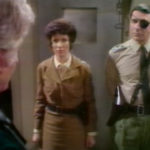
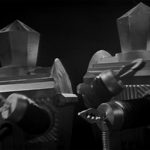
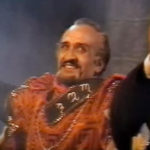
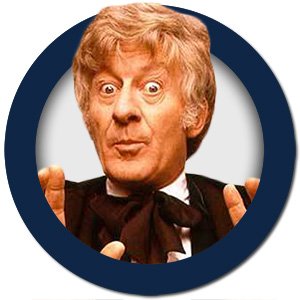
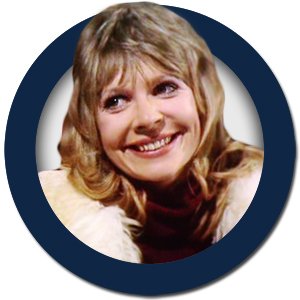
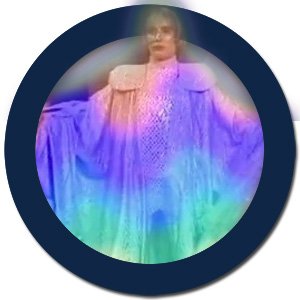
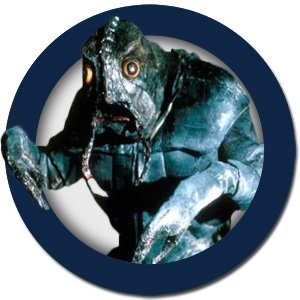
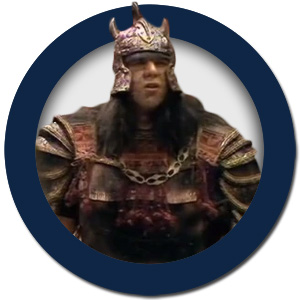







With an almost Pythonesque intro, this serial tells the tale of the lesser polished bits of the great and bountiful Human Empire. The Doctor and Jo are sent a partially deflated and charred football with some magic stones inside, and must find its rightful owner among a mixed bag of storm troopers and rebels.
Let me say this outright: The Marshal is a steaming pile of shit. He starts as a steaming pile of shit, and his entire story arc propels him towards his ultimate end, where he dies as a steaming pile of shit.
Along the way, we are taken on a slow and confusing tour of Solos, the misty, custard-like planet around which the ingeniously named Skybase One orbits and oversees. Solos has been enslaved for generations by humanity and is now in a state of diabolical terraforming by Professor “My First Chemistry Set” Jaeger, who has the worst delivery and timing of anyone, ever.
There are good guys – Sondergaard, the Professor X to the Proto-Zarbi evolved Solonians. Amenable guards Stubbsy and Cotton (I’m Rick James, Bitch!), and of course Ky, the passionate, beleaguered leader of the resistance. Varan gets included as he loses a son and his whole reason for being when he gets played by Marshal Hankey.
We also get a brief cameo by Geoffrey Palmer, as the Administrator – his second of three Doctor Who appearances.
Ky regenerates into Q and uses the Force to destroy the Marshal, and the Doctor and Jo pop back off to Earth, leaving the space station in the hands of Good Ol’ Cotton and his band of Merry Mates.
2.2/5 For the time wasted on the Marshal heffalumping around the screen, the fucking god-awful blue screen effect, and the rambling storyline which they eventually figured out they were trying to tell. Also, they named the black guy “Cotton”. What the fuck. Welcome to the Sensitive Seventies.
When the Doctor was exiled to 20th Century Earth, the variety of stories in which he could appear was limited dramatically. Nevertheless, the nature of science fiction historically enabled writers like Bob Baker and Dave Martin to engage in social commentary. Their meaty serial, “The Mutants,” brought the Doctor and Jo to a Skybase orbiting the planet Solos in the Time Lords’ service. He was to deliver a sealed container to someone knowing neither the recipient’s identity nor what was inside.
This container’s most likely recipient might have been the Marshall in charge of the Earth colony there. He returned from hunting mutants to learn he would lose his job after the Administrator gave both a long, boring speech and the planet its independence. As a ruthless, conniving bureaucrat, the Marshall didn’t take the news he might end up with a clerical job in the Earth empire’s records department well. He had the Administrator assassinated and imposed marshal law. To cover his tracks, he double crossed the assassin and dispatched guards to hunt down everyone who might incriminate him. Conveniently, his enemies, including two guards, Cotton and Stubbs, who did their jobs but sympathized with the Doctor, gathered in a mine on the planet within a cave complex. Their crafty leader sent them into the cave mines to find the Doctor, who had not yet delivered his sealed container. The Marshall planned to gas and entomb everyone, but his murderous plan failed before things got worse. He learned an investigator would soon arrive to scrutinize his record and recent activities. To cope with the mounting pressure, he shouted at subordinates; had enemies, including Stubbs, shot down; and, in more difficult circumstances, used hostages to compel cooperation.
Mad Scientist Professor Jaeger was the Marshall’s primary henchman. He was slowly trying to transform the planet’s atmosphere so sunlight would not make it toxic to humans. His experiments led him to believe the ultimate solution required a rocket barrage that would wipe out the planet’s inhabitants and the mutant population. He also thought the Doctor’s vast, scientific knowledge might enable him to pick up the project’s pace.
Regardless, Jaeger understood firestorms corresponding with the atmospheric experiments, which amounted to human intervention, were progressively raising the global temperature as the planet moved, for the first time in 500 years of human experience, into summer. In reality, it took 2000 years for Solos to go through what, on any other planet, would be an annual, seasonal cycle. The tablets in the Doctor’s container used a forgotten language of pictographs to represent the planet’s seasonal life cycle and revealed the population’s mutations were natural. The atmospheric experiments had accelerated both the life cycle and the mutations, which were entirely misunderstood.
Sondergard, a human who studied the planet’s culture until, to the best of the Solonians’ knowledge, he disappeared, translated and read the Time Lords’ tablets with the Doctor’s help. He was also the strange, silver figure who rescued Jo from the dangerous, radiation-drenched heart of the cave mines, to which mutants were instinctively drawn. He also led the Marshall’s intended victims in the cave mines to safety in his lead shielded base before directing everyone except the Doctor through the underground labyrinth to a native village. He also twice guided the Doctor to locations to which he couldn’t accompany the Time Lord before befriending a group of enormous, mutant insects and leading them to Skybase.
Black actor Rick James played Cotton, the more symbolic member of the story’s guard duo. His presence helped the serial denounce both racism and colonialism. which may naturally become intertwined. The first two episodes repeatedly emphasized the high cost of colonialism to the Earth, which passed them on to their colonies until their resources were utterly depleted. So, as Earth cut its losses, mined out, stripped bare Solos would be abandoned, leaving only slag and refuse behind. Previous DOCTOR WHO serials had explored environmental themes. Radiation repeatedly killed crops in “Colony in Space” and a rogue scientist aspired to open a fruit museum in “The Ice Warriors,” while expanding glaciers threatened Earth’s population, which had depleted the oxygen from the atmosphere. In “The Mutnats,” Earth, the colonial power, exploited Solos’ resources and population, which humans considered inferior. Transfer stations conveyed Solonian and human “overlord”characters between Solos and Skybase in separate cubicles, symbolizing segregation. Later in the story, characters routinely ignored cubicle assignments, demonstrating the decline of racism. Also, the Marshall ordered transfer stations on Skybase and Solos shot at so frequently they should never have worked by the end of the story.
Veran was the noble, savage warrior who represented the story’s third strong theme, opposition to violence. He was double crossed and hunted for his trouble after conspiring with the Marshall to assassinate the Administrator, and his son, the killer, was murdered. Veran lost a fight with the Doctor, who persuaded him to help track Jo down on the planet. They tracked her to the cave mines and helped Ky fight off mutant insects who might have overwhelmed him. Leaving the cave mines before the Marshall’s gas attack, Varan discovered his village largely abandoned and was horrified to find himself mutating. He led a foolhardy attack on Skybase, using living shields, during which he and his pathetic force were wiped out.
Ky, the diplomat, was Veran’s rival and the story’s real hero. He inexplicably disrupted the speech where he and whatever followers he had would have reached their goal of freedom. They apparently made previous political progress against the Marshall, who accused him of terrorism. The only thing we saw him do, apart from agitating, was taking Jo along while fleeing Skybase under threat of arrest. She, though, was chasing him because the Doctor’s delivery was intended for him, meaning only he could open the sealed container. On the planet, Ky kept Jo alive and safe before undertaking a classic heroic journey through the Underworld, which the cave mines represented. Mythical, Greek heroes like Theseus, Orpheus, and Heracles were defined by such legendary adventures. Within the cave mines, a catalyst for native mutants’ change waited. After Ky’s transformation into an angelic being, he led all the mutants on Solos while the imperial humans prepared to leave.
Jo served ably as the Doctor’s sidekick. She refused to be left behind on Earth and was taken down to Solos to draw the Doctor there. In the cave mines, she discovered the chamber in which the Doctor would later find the catalytic crystal. Her escapology training was instrumental to her allies and enabled them to win freedom from the Marshall’s guards, from whom she wisely retrieved the Doctor’s captured sonic screwdriver. She also advised the investigator of the Marshall’s activities after Cotton contacted him. When he arrived, she led a daring escape through the tube fueling his spaceship, beside which the Marshall intended them all to be fatally irradiated.
The Doctor wove the entire story together as the Time Lords’ messenger, meeting each character and keeping the narrative moving. On Solos, he retrieved the catalytic crystal that would facilitate the mutants’ transformation from the heart of the cave mines. Earlier on Skybase, he gained a tantalizing glimpse inside his container with Jaeger’s help and his knowledge of particle reversal, a technique essential for decontaminating the planet after the disastrous rocket barrage. Finally, he sabotaged the atmosphere altering equipment to ensure the Marshall’s defeat at the end.
The serial’s ambition exceeded the BBC special effects’ capabilities, despite Producer Barry Letts’ love of cutting edge technology of the day like CSO, Color Separation Overlay. The fourth episode ended with the hull breach Varan’s attack on Skybase caused and Jaeger’s rocket barrage. Both events were suspenseful and had the impact worthy of a cliffhanger, but looked hideous. The hull breach amounted to a warrior lying on a star field and Jaeger’s rockets descended vertically. The particle reversal beam that decontaminated the planet was a small triangle of purple light reminiscent of a pencil flashlight beam accompanied by a sound effect. Guns firing in firefights throughout the story were worthy of BLAKES 7. They didn’t look great, but conveyed the action. Despite problems executing special effects, “The Mutants” is an extremely ambitions, entertaining, and timely DOCTOR WHO serial applying real scientific principles to a fictional world where powerful, thought provoking themes were intertwined with the arch typical characters who grappled with and symbolized them.
I remember seeing an online rating for this and being unable to fathom why people don’t like this as much as I do. It is one of those Dr. Who stories that treat the fantasy elements as if they were backed by hard Scifi. It’s an approach that always appeals to me. Stubbs and Cotton are great characters, and it’s a shame that they never return. The same goes for hippie Sondergard. The administrator’s all too short appearance is enough to make us regret when he is gone, and the Marshall’s arrogance, ambition and anger are enough to make us both enjoy and despise him by the end. Indeed the acting carries the plot at times, though admittedly there are some silly moments, especially during the action scenes. Indeed the biggest production flub of the week must go to the vacuum into space scene, where apparently making a face is enough to keep you from being sucked into the void.
I found the creature of the week to be well done, although I’m not sure why the intermediate stage between person and angel is beetle. My retro-rewrite this time is not for this story, but for a future series set on the skybase as it is returning to Earth under Cotton’s command. This era of Earth’s fictional history is so detailed that it is ripe for further exploration and conflict.
Though there are some real profound plot conveniences I ultimately feel that this is a tight script ultimately let down primarily by budget. Just imagine how much would have been lost if this story were black and white or telesnaps? I understand why it doesn’t appeal to everyone, but I personally think it’s a strong serial at the perfect time. Overall I give it a, “Do you know how much could have been avoided if you had just given me the freakin key?”, 3.4
Oh, and it was going so well. “The Mutants” is one of those signs that the production team is running out of steam. But, what was so bad about this story? Let’s find out together.
Patrick Mulkern of Radio Times stated that the serial was “peculiarly variable”, with uneven performances and quality; he wrote that “the first episode is surprisingly leaden and unengaging, whereas episode four is one of the most stimulating and creatively innovative under Barry Letts’ stewardship”. He praised the design of the Mutants and some of the cliffhangers.
I share the same opinion as Mulkern. To me, Most of Pertwee’s era ranged from decent to amazing. This falls into the average category to me. I’m not the only one who thinks so. DVD Talk’s John Sinnott, for example, gave the story two and a half out of five stars, calling it “terribly average” but “a solid adventure … worth watching”. He was critical of the acting, especially Rick James, and felt that overall it was too long and “a bit convoluted”. This story could’ve been four parts at least if not five.
Looking at other reviews for “The Mutants”, most range from 2-3 stars out of five. I can’t help but agree. A 2.7/5 is maybe enough to give this one a passing grade. I’d say watch it if you haven’t. Seeing those mutants are totally worth it. I don’t get why people call this the worst of the Pertwee era. I can think of one story that is pretty bad from his era. And oh, we’ll get to that.
There are plenty of “Arthur Fuxake” moments to choose from in this serial, but the honour must go to the cliffhanger ending in Epsiode 4. Not only is it woefully bad, but also one of the slackest, most ludicrously unfeasible examples of TV writing I have ever been expected to swallow.
…I’m so happy!
The Monty Python-style opening was quite amusing, particularly when you consider that Doctor Who was often parodied on comedy shows, and not usually the other way round.
The series revisits once again topical events of the era, this time concerning itself with apartheid. It’s been suggested that this is also the reason why a black actor was given a major role, although they missed the point somewhat considering that he’s clearly of Caribbean origin and not African. A lot has since been said about this actor’s complete inability to deliver his lines convincingly, although most of the supporting cast were pretty dreadful. Great stuff, by the way!
The Marshall, on the other hand, was a really nasty piece work and one of the most despicable Who villains thus far. However, the demonstration of his latent insanity towards the end was absolutely hilarious! I laughed hard when he revealed his plan of forcing the committee members to populate the planet for him to rule over.
All in all, the serial was poorly executed in many ways and would normally rate it 1.8, but will in fact raise my score to 2.5 purely for it’s comedy gold value.
Following Who Back When through the Pertwee era has been quite an eye opener. I first saw the Pertwee stories out of order on VHS, but listening to you guys experience them as fans in the 70s would have, I can appreciate how tired the Earth-bound, Master heavy stories became. And the Doctor clearly agrees, judging by how readily he jumps into the Tardis to run an errand for the Time Lords.
I rather enjoyed the Mutants, although it is somewhat hit and miss. It has some nice sci-fi ideas and a strong, if unsubtle, moral message, teaching 70s viewers that colonialism, racism, apartheid and scientists with German names are all bad things. Its progressive attitude spills over into the casting, as we get that Classic-Who rarity, a non-white character who the Doctor treats as an equal. It’s just a shame that the actor playing Cotton is terrible.
The rest of the cast is a mixed bag. I liked Stubbsy as the everyman who wants to do the right thing, while the Marshall is suitably evil, if a bit OTT. Ky is somewhat dull and uninspiring, and if he’d just kept his mouth shut in episode one, the Solonians might have gained their independence right then. And how did his clothes evolve along with his body in episode 6?
The production values are variable, with the fantastic Mutant costumes and great location filming contrasting with the uninspiring Skybase sets and ropey effects work. But the main problem is how drawn out the story feels. Cut two episodes, and the plot wouldn’t suffer.
All in all, it’s not bad, and being offworld makes for a nice change. I’ll give it 2.5 out of 5.